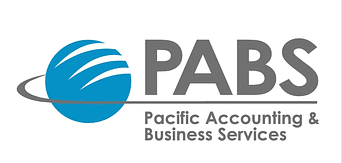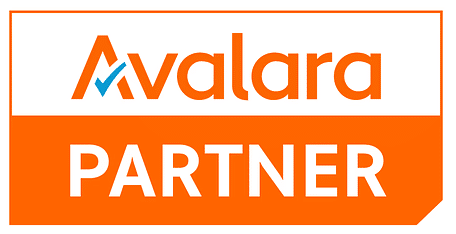Considerations When Adding Children To Your Payroll As A Small Business
Whether you’ve had a small business for decades or you’re a relatively new company, there will certainly come a time when someone suggests that you add your children to your payroll. When it comes to tax savings strategies, this may be one of the biggest strategies that continues to float around for decades even though the theory behind it may not add up.
There are important considerations to keep in mind before making this decision. A professional tax advisor can help you navigate the complex tax laws and regulations surrounding children on payroll, but here are some general considerations to keep in mind.
Why Add Children To Your Payroll?
It’s not easy operating any small business, and pitfalls can quickly take you under. One way to alleviate some of the financial burden may be by adding your children to the payroll. This decision may provide several benefits, such as:
- Tax Savings: Employing your children allows you to deduct their wages as a business expense and minimize paying federal taxes on the income they earn.
- Family Involvement: By involving your children in the business, they gain valuable experience and can learn essential skills for future career opportunities.
- Retirement Savings: Paying your children a salary allows them to contribute to a retirement plan, such as a Roth IRA, which can provide long-term financial benefits.
- Succession plan: Having your children on the payroll can also serve as a succession plan for your business, ensuring it stays within the family and continues to thrive for future generations.
Important Considerations When Adding Children To Payroll
Not only does any business have to succeed in the competitive market, but many of them don’t succeed because they are unaware of the necessary tax laws and regulations. Being able to save money creatively can be a huge advantage for small businesses, especially when it comes to taxes.
While there are potential non-tax benefits to including your children on the payroll, it’s important to consider the actual tax calculations that factor in when making the choice. While it is true that the first thirteen thousand in income you pay your children will not be subject to federal income taxes, these wages could potentially be subject to social security and Medicare taxes. This tax rate is 15.6% so automatically you must factor in that you have increased your tax burden by this amount unless your child meets specific considerations in the IRS tax code. The math comes into consideration when you contemplate your federal tax rate. If you are currently in a tax bracket that is 24% or higher, adding your children will save you roughly 8-9% tax overall (unless you qualify for an exemption). If however, you are marginally in this tax bracket or in a lower tax bracket, the savings generated by this strategy may not be worth it.
Considerations When Adding Children To Your Payroll
While adding children to your payroll has significant benefits, it’s important to consider the following factors before making any decisions.
Age and Responsibilities
The age and responsibilities of your child will impact their wages and potential tax deductions. For instance, younger children may have limited duties and therefore lower wages compared to older children who take on more responsibilities.
Fair Wages
It’s important to ensure that the wages you pay your child are fair and consistent with industry standards. This can help avoid any potential issues with the IRS and ensure that your business is in compliance with labor laws.
Documentation
As with hiring any employee, having proper documentation for your child’s employment is important. This includes a job description, payroll records, and any necessary tax forms. If you don’t have accurate records, you run the risk of facing penalties and fines from the IRS.
Are Their Restrictions For Hiring A Child?
- You must have what the IRS considers a “family owned and operated” business. This generally means one or both of the parents must be the majority or sole shareholder of the business.
- To qualify for exemption from Social Security and Medicare taxes, your child must be under 18 years old.
- When your child turns 21, you are required to pay federal unemployment taxes on their wages.
- The IRS may scrutinize high wages for children, deeming them unreasonable if they exceed typical rates for their responsibilities. For example, you can’t pay your 10-year-old $80,000 a year to answer the phone.

When Is The Best Time To Add Children to Payroll?
The best time to add children to your payroll is during the summer or school vacations when they have more free time to work without it interfering with their education. This also allows them to gain practical work experience while contributing to your business during these periods of less academic pressure.
You may also want to consider adding them at the beginning of the fiscal year to help streamline the process by aligning their employment with your financial and tax planning. This strategic timing ensures that your business benefits from the additional help and that your children gain invaluable skills and experience.
Frequently Asked Questions About Children And Payroll
What age can I put my child on payroll? While there is no set age, you still need to check your state’s laws regarding child labor and age restrictions for employment. Typically, children can start working at the age of 14 with some restrictions on hours and type of work they can do.
Is it better to pay my child a salary or hourly? It depends on their responsibilities and the nature of your business. Some businesses may benefit from paying a fixed salary, while others may find it more practical to pay an hourly wage. Before deciding, it’s important to consider factors such as the type of work, hours, and fair wages.
Should I give my child a 1099 or W-2 tax form? The form you give your child depends on their employment status. If they are considered independent contractors, a 1099 form is appropriate. However, if they are employees of your business, a W-2 form is necessary.
Conclusion
Our team at FlexKeeper has a professional team who can help small businesses navigate the benefits and considerations of adding their children to payroll. We also assist with bookkeeping/accounting services, which make the process seamless and hassle-free for business owners. With careful consideration and proper documentation, hiring your child can provide tax advantages, succession planning, and valuable work experience for future career opportunities. Consider discussing this option with a financial advisor or accountant to determine if it’s the right decision for your business.












